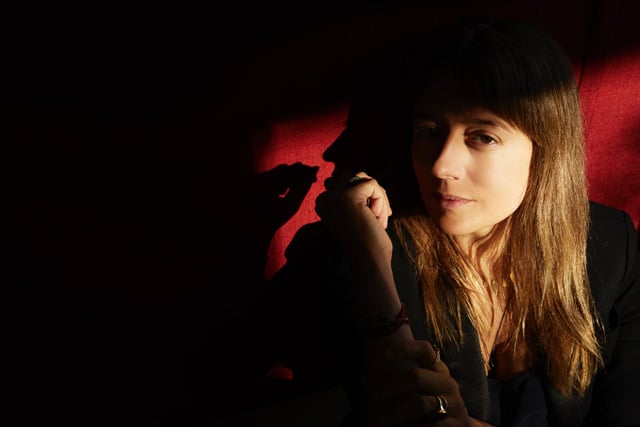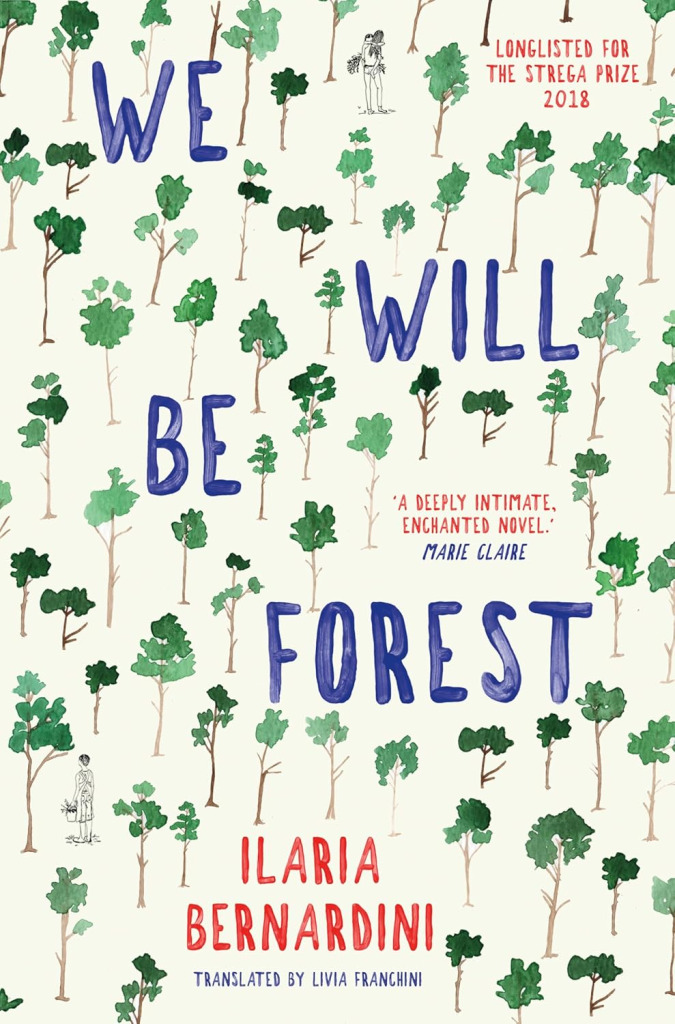
While the bestselling Italian author and screenwriter, Ilaria Bernardini, has been churning out pages of film scripts, new novels and articles, another author has been working behind the scenes to bring one of her most enchanting stories into the English tongue. We Will Be Forest is the story of two women who are healed through their connection and the magic of nature. Unlike many authors, Bernardini does not hide away from the fact that this is based on a story from her own life. When the self-proclaimed plant-killer found herself witnessing another woman, whom she calls “a green-thumped guru”, in a desperate medical situation, she had no idea of the impact it would have on her life, let alone her writing. Nor did she have any idea that what began as a simple collaborative gardening task, would evolve into a spiritual adventure of growth that would help both women through the hardest times in their lives.
Sara-Ella Ozbek: Tell me about the experience that led you to write this novel, or at least, your memory of it?
Ilaria Bernardini: It is based on a real story from my life, but drawn from my flawed memory, my flaky point of view. I was 32, freshly divorced, clueless about solo living (I had moved in with my husband when I was eighteen) and had been thrown into single parenthood with a tiny human in tow. I moved into a house with a jungle of half-dead plants left behind by the previous occupants. At the same time, my Mom’s assistant had a brain stroke in front of me. She recovered, albeit with an altered body and panic attacks. We bonded over the plants and I said, “Why don’t you work your magic on my sorry excuse for a garden?” And just like that, our urban forest adventure began. We were like a dynamic duo, facing fears and planting dreams on my terrace, one pot at a time. Watching those sprouts grow was like witnessing a tiny miracle in action. Plus, it gave me the perfect metaphor to explain life’s weird twists and turns to my kid. As the seasons danced by, our forest flourished (with the odd disaster) becoming our symbol of renewal, a reminder that even in life’s messiest moments, there’s beauty waiting to bloom. If a couple of plant novices like us can find joy and growth amidst the chaos, anyone can.

SEO: You’ve written novels in both Italian and English. Why did you decide not to translate this one, yourself?
IB: The book is written almost like a monologue, with a very precise rhythm, in a very specific first person singular that I always use in books in which I talk about my life (some of my novels are NOT about my life!) I thought that a poet like Livia Franchini, a talented, bilingual author, was absolutely necessary to render that rhythm, that flow, with the nuances that it deserved.

SEO: Do you expect the story to reach English speaking readers in the same way as it does Italian?
IB: I am not sure. I do feel it’s a very universal story, so hopefully, the forest will keep on growing, and regenerating, too.
SEO: Can you talk about the botanical metaphor in the book and how you developed it?
IB: This is a small-scale private experience, with features common to many: illness, pain, grief, the end of a marriage, a child who needs protecting from the transience of life. The existential metaphor is in the whole of botany, its seasons, the secret roots, time, the idea of where we ‘plant’ ourselves to flourish, what distance means to us, what care means. The idea of deciding to try growing forests in drought is the most powerful metaphor for me.
SEO: Who are your favourite authors, your biggest inspirations?
IB: I have noticed that when I am asked this question, I always answer differently. Maybe because I have no memory, maybe because the inspiration of an author absolutely has to do with the obsession of the moment, for me it’s what I’m studying, or writing. There are authors that I always come back to, or that I’m nostalgic for, and that I sometimes read and reread as if they were prayers, if only to clean my tongue, or my mind: Alba de cespedes, Sibilla Aleramo, Natalia Ginzburg, Tondelli, Woolf, Murakami, Calvino, Giuseppe Berto. But even now, I pick one, I think of a thousand, I feel guilty, vague.
SEO: What are your favourite films in the film noir genre?
IB: I will mention an Italian one, though noir isn’t very big in the history of Italian cinema or maybe I have missed out on it. Cronaca di un amore [Story of a Love Affair (1950)] directed by Michelangelo Antonioni. It is a neo-realist noir set in Milan, a postwar city of angular, black-and-white architecture à la Antonioni, starring a beautiful, talented and frightened Lucia Bosè. It is a story of love, death and lies. It is very elegant overall. Evene dialogue is elegant. Even the pain is elegant. An elegant film.
SEO: What is next for you, writing wise?
IB: My new Italian novel Il dolore non esiste has just come out, so I am touring with that, and I am writing various movies. One I can talk about—I think, I am not even sure—is that with Morten Tyldum, based on the beautiful and incredible true story of Mats Ibelin Steen. We Will Be Forest is also becoming a movie, so I am working on that, too.
We Will Be Forest is published by Whitefox.



